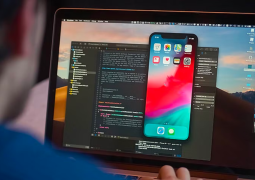8 Skills All Programmers Need To Have
by 01/12/2022 16:530

These 8 skills will help you be a great software programmer in high demand.
We reviewed all the skills that might fit your needs as a programmer and surveyed hundreds of software developers, and discovered a trend. We drew up some requirements, and then we shortlisted the ones that fulfilled them – here are the top 8 skills every programmer needs to have in their skillset.
Technical Skills And Knowledge Of One Or More Programming Languages
The reason for this is simple: Programming languages are used to create applications that run on computers. These programs tell the computer what to do and how to do it. A programmer writes code in a programming language, which is then compiled into machine language that the computer can understand.
There are many different programming languages available depending on the type of application you want to build or the aspect of software development you want to become an expert in.
For instance:
● Android application developers would need to master Kotlin, Java;
● iOS app developers – Swift;
● Back-end website programmers- Ruby, Python, PHP, SQL, etc.;
● Web developers (front-end) – HTML, CSS, Javascript, etc.;
● Blockchain development – C++, Rust, Python, Go, etc.
Popular programming languages per Github include:
● Python
● Java
● C++
● Go
● JavaScript
Additionally, you’ll need a working understanding of the following when writing code:
Integrated Development Environments (IDEs).
These are software programs that help developers write code faster. They provide an integrated environment for writing, testing, debugging, and running applications. IDEs include tools for writing code and making changes to it quicker. Examples are NetBeans, Microsoft Visual Studio, Adobe Flex Builder, and Eclipse.
Debugging and Testing procedures.
These are an integral part of programming. They allow you to fix bugs in your code so that it runs smoothly and reliably.
Version control.
A version control system is used to track changes in code over time. It allows multiple people to collaborate on code without stepping on each other’s toes by creating new files or overwriting old ones. The standard version control tools are Git and Github.
Understanding UX/UI principles.
UI is “user interface,” and UX is “user experience.” So, if you don’t understand how users will interact with your product, you’ll probably end up with a bad product.
Others are:
● Knowing how to use APIs;
● Object-oriented programming (OOP) languages;
● Scripting;
● Working with Text editors; and
● Containers.
Pro Tip: You should evaluate your coding skills. Why is this important? Well, it will be hard to improve if you don’t know where you stand. You need to know your strengths and weaknesses so that you can work on improving them. It will help you become a better coder overall and make it easier for employers to see your potential. More info – elitebrains.com/code-tests
Cloud Computing Technologies
With the popularity of cloud computing, developers need to be acquainted with this technology. Cloud computing is an approach that allows users to store and access their data on remote servers. It offers flexibility, scalability, and reliability.
Cloud computing can be used in various ways, including storing files and data remotely, using software as a service (SaaS) applications like Salesforce or Dropbox, or building web applications using cloud-based infrastructure such as Amazon Web Services (AWS).
Knowledge Of Database And SQL
You can’t escape the fact that data is everywhere. That’s why knowledge of database technology is so necessary. Understanding how to manipulate data will give you an edge even if you’re not working with databases directly.
SQL is a language used to query, manipulate and interact with data in relational database management systems. You don’t have to know all the nitty gritty details about SQL, but you should at least understand enough to write simple queries so that you can access data from your database.
Understanding how these technologies work will significantly help you when working on projects involving large amounts of data.
Data Structures And Algorithms
Using data structures effectively will make your programs faster and more efficient. Algorithms are sets of rules for solving problems and making decisions — for example, an algorithm for sorting numbers might be to compare each number with its predecessor and swap them if they’re out of order. The best programmers know how to choose the proper data structure for the job and how to write good algorithms in their code, so it runs as fast as possible without sacrificing quality or readability.
Both data structures and algorithms form the backbone of how computers store and process information. If you want to write software that works well with other software, you need to understand these things well enough to use them properly — even if you’re not writing them yourself.
Understanding Online Networking Basics
You should have basic knowledge of both wireless and wired networks. Some software developer jobs lean heavily on one type of network, but experience with both is valuable.
Soft Skills
Soft skills are learned through experience and can’t be taught in a classroom. Many people think programmers don’t need soft skills, but nothing could be further from the truth.
This group of skills is crucial because they help you build better human relationships with your team members and clients. Also, they ensure you’re a great person to work with. Plus, they’re needed to handle any situation professionally and keep you going as an expert.
Here are some of the soft skills that all programmers should have:
● Ability to read and understand the requirements document;
● Communication Skills;
● Creativity;
● Attention to Detail;
● Self-Motivation;
● Time Management Skills;
● The ability to work in a team environment;
● Ability to learn continuously (and quickly);
● Problem-solving skills.
An Understanding Of The Business Side Of Software Development
Software development requires more than just technical skills — it also requires understanding how your work fits into the overall business strategy.
In other words, you should know how to do the following:
● Understand what it means to build a product that your customers want and how to prioritize features accordingly.
● Understand how much it will cost to build a product and how much money you need to generate from its development.
● Understand which resources are required for building a product, including people, tools, and software libraries.
● You need to know how your work/product influences success and how it makes money.
Knowledge Of Industry Best Practices
It doesn’t matter how great you write code; if you know what’s expected of you and your team, it’ll be possible for you to do a good job. The best programmers are the ones who know the industry’s best practices and consistently follow them.
You should be able to answer these questions — what are the trends? What are technologies hot right now? What do other companies use? Which technologies solve which problems?
It also includes software engineering principles such as modularity, abstraction, encapsulation, and others. These principles help programmers write better code that is more maintainable, robust, reusable, and extensible through time.
Final Words
In today’s competitive job market, it’s essential to have a robust skill set. This article identified a host of skills you should have as a developer, both hard and soft. Keep in mind that there are other skills, and you can always learn more to round out your skill set even further.



